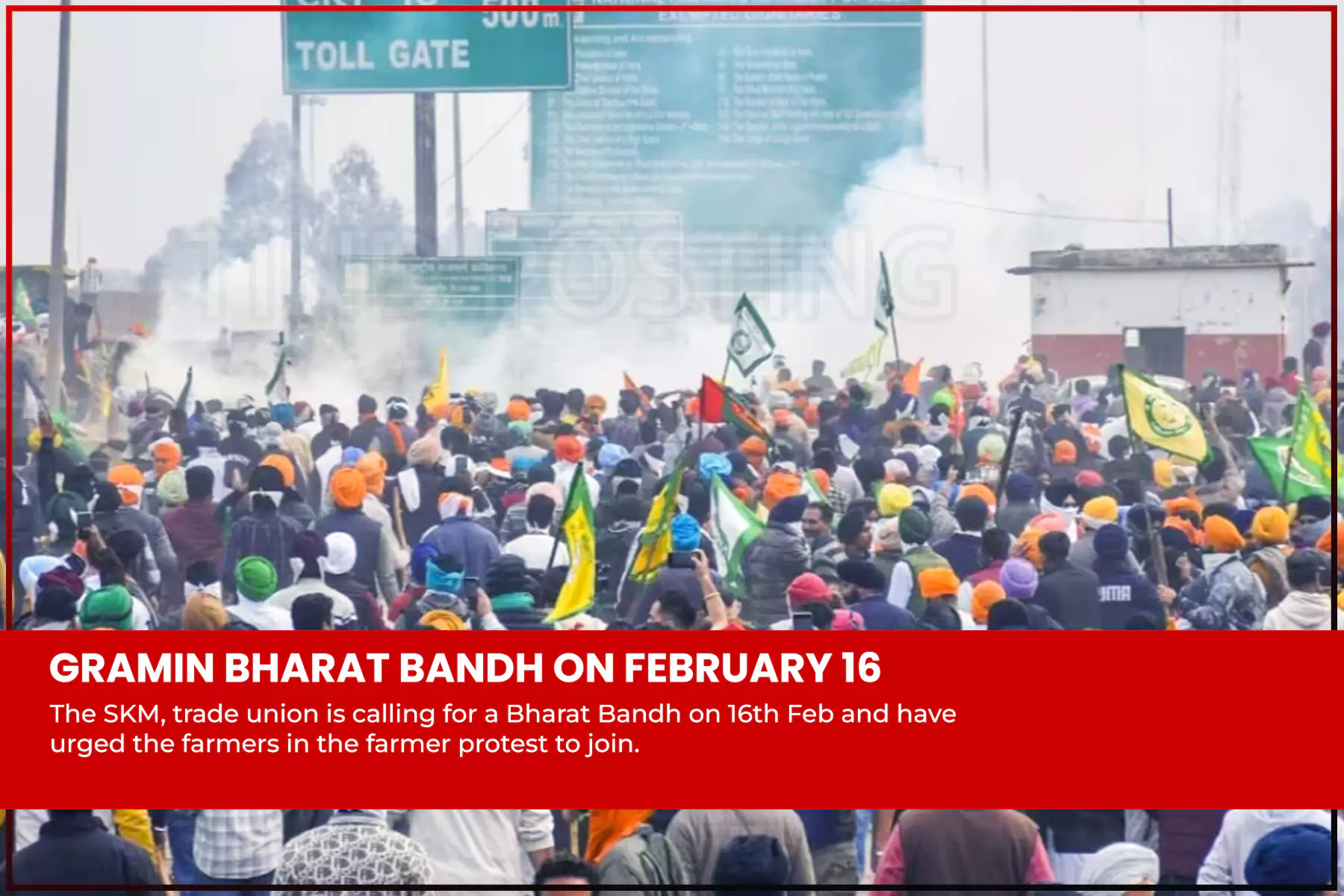The Samyukt Kisan Morcha (SKM) has urged all like-minded farmer organisations to band together and participate in the Gramin Bharat Bandh on February 16 amid violent clashes between the protesting farmers and security forces on the first day of the “Dilli Chalo” march on Tuesday.
Gramin Bandh, which will take place from 6 a.m. to 4 p.m. Farmers will participate in widespread chakka jams on major roads across the country on Friday from 12 p.m. to 4 p.m., in addition to the Bharat Bandh during the day, according to Indian Express. In Punjab, the majority of state and federal highways will be closed for four hours on Friday.
“The Gramin Bharat bandh call had been planned in December,” stated Dr. Darshan Pal, a member of the SKM National Coordination Committee (NCC). “Villages will be closed on this day to all rural and MNREGA work as well as agricultural activities. On that day, there will be no work for farmers, agricultural workers, or rural labourers. We will guarantee access to ambulances for emergencies, deaths, marriages, medical facilities, newspapers, board exam students, and travellers to the airport.”
Demands of the Bharat Bandh
Like the farmer unions behind the “Dilli Chalo” call, Bharat Bandh has been called for similar demands. The unions that are supporting the Gramin Bharat Bandh have called for the return of the labour laws that were amended, pensions for farmers, MSP for crops, and the implementation of the ancient pension plan.
Other demands include the prevention of contractualization of the workforce, no privatisation of PSUs, employment guarantees, etc.
The affect of the Bandh
Transportation, farming, MNREGA rural works, village shops, private offices and institutions in the rural industrial and service sectors will all be closed on February 16 due to the bandh.
He added that there would be zero vegetable trading or crop purchasing. The closure of village stores, grain and vegetable markets, governmental and nongovernmental offices, rural industrial and service sector establishments, and private sector businesses has been recommended. Furthermore, during the strike period, stores and companies in the towns that border the villages will be closed.
Additionally, he made it clear that no essential services—such as the running of ambulances, the distribution of newspapers, marriages, medical establishments, board exam preparation for students, etc. will be interrupted during the strike.

by Swapnil Angel Samad
